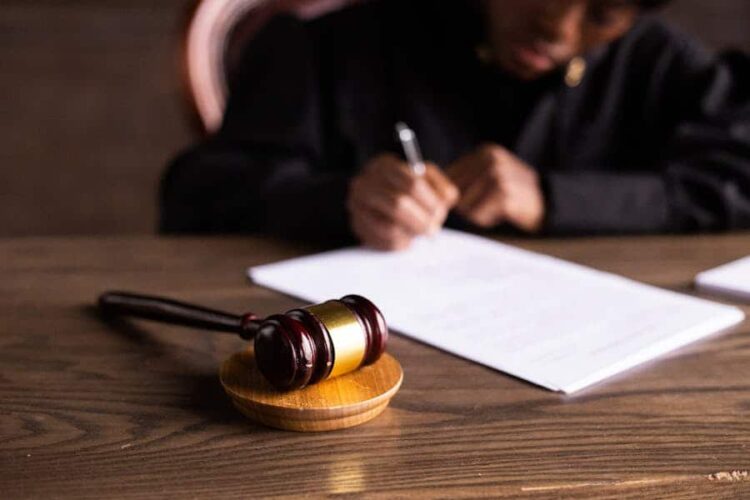The legal system plays a pivotal role in ensuring justice is served in criminal cases, and one critical component of this process is the evidentiary hearing. Evidentiary hearings are vital proceedings within the legal framework, designed to determine the admissibility of evidence and address crucial questions related to a defendant’s rights and the fairness of a trial. In this article, we delve into the heart of evidentiary hearings, exploring their definition, significance, and the circumstances under which they are conducted. We will also examine how these hearings are carried out, the types of questions they address, and their essential role in upholding the principles of due process and a fair trial.
What Is An Evidentiary Hearing In A Criminal Case?
An evidentiary hearing in a criminal case is a formal court proceeding held to determine the admissibility of evidence or to address specific legal issues related to the case. Unlike a trial, where guilt or innocence is determined, an evidentiary hearing focuses on the rules of evidence and legal arguments. During an evidentiary hearing, the following may be addressed:
- Admissibility Of Evidence: The court evaluates whether certain pieces of evidence, such as witness testimonies, documents, or physical items, can be presented in the trial. This may involve discussions on whether the evidence was obtained legally or if it is relevant to the case.
- Suppression Of Evidence: Defense attorneys may request the exclusion or suppression of evidence if they believe it was obtained unlawfully, in violation of the defendant’s constitutional rights (e.g., Fourth Amendment rights against unreasonable searches and seizures).
- Witness Credibility: Issues related to the credibility of witnesses may be examined, and the court may assess whether certain witnesses should be allowed to testify or not.
- Constitutional Violations: Evidentiary hearings can address claims of constitutional violations, such as violations of a defendant’s rights to due process, a fair trial, or protection against self-incrimination.
- Other Legal Challenges: Various legal issues, including challenges to the chain of custody of evidence, issues with search warrants, or challenges to the authenticity of documents, can also be addressed in evidentiary hearings.
Why Are Evidentiary Hearings Conducted In Criminal Cases?
Evidentiary hearings are conducted in criminal cases for several important reasons, each aimed at ensuring the fairness of the legal process and upholding the defendant’s constitutional rights. Here are the primary reasons why evidentiary hearings are conducted:
Challenge To Evidence: Evidentiary hearings allow the defense or prosecution to challenge the admissibility of specific evidence. This can include objections to witness testimonies, documents, physical evidence, or statements made by the defendant. The purpose is to ensure that only legally obtained and relevant evidence is presented at trial.
Suppression Of Evidence: If the defense believes that certain evidence was obtained in violation of the defendant’s constitutional rights, such as through an illegal search or seizure, they can request an evidentiary hearing to seek the suppression of that evidence. If the court agrees, the evidence may be excluded from the trial.
Disputes Regarding Witness Testimony: Evidentiary hearings can be used to resolve disputes over the credibility or relevance of witness testimonies. This includes issues like witness intimidation, inconsistent statements, or whether a witness has privileged or protected information.
Due Process Concerns: Evidentiary hearings are a means to address due process concerns, ensuring that the defendant’s rights to a fair trial and proper legal procedures are upheld. For example, hearings can examine issues related to the right to counsel, the right to remain silent, or the right to confront one’s accusers.
Pretrial Matters: Evidentiary hearings may occur before the trial to address pretrial motions and issues that could affect the course of the trial. These can include requests for bail, motions to dismiss charges, or decisions on whether certain evidence should be presented.
Post-Conviction Relief: In some cases, evidentiary hearings are conducted after a conviction has occurred to address claims of ineffective assistance of counsel, newly discovered evidence, or other issues that could potentially lead to a new trial or exoneration.
Ensuring Fairness And Justice: Overall, evidentiary hearings serve the broader purpose of ensuring that the criminal justice system operates fairly and justly. They allow the court to scrutinize evidence, legal arguments, and procedural matters to prevent wrongful convictions and protect the rights of the accused.
When Are Evidentiary Hearings Held?
Evidentiary hearings in criminal cases can be held at various stages of the legal process, depending on the nature of the issues being addressed and the specific circumstances of the case. Here are some common stages in a criminal case when evidentiary hearings may be held:
1. Pre-Trial Stage:
- Bail Hearings: Evidentiary hearings to determine whether a defendant should be granted bail and under what conditions.
- Motions To Suppress Evidence: These hearings are held to decide whether evidence, such as seized property or statements made by the defendant, should be excluded from trial due to alleged violations of constitutional rights.
- Discovery Disputes: Hearings to resolve disputes between the prosecution and defense regarding the sharing of evidence and information related to the case.
2. During The Trial:
- Objections And Rulings: Throughout the trial, both the prosecution and defense may raise objections regarding the admissibility of evidence or witness testimonies. The judge may conduct mini-evidentiary hearings to decide whether the objected evidence should be admitted.
- Witness Credibility: If there are concerns about the credibility of a witness, the court may hold hearings to assess their competence or reliability.
3. Post-Conviction Stage:
- Post-Conviction Relief: After a conviction, a defendant may request an evidentiary hearing to present new evidence, such as DNA test results or witnesses recanting their statements, which could potentially lead to a new trial or exoneration.
- Ineffective Assistance Of Counsel Claims: Evidentiary hearings may be held to assess claims that the defendant received inadequate legal representation during the trial.
- Newly Discovered Evidence: If new evidence that could not have been reasonably discovered during the trial comes to light, a hearing may be convened to determine its significance.
4. Appeal Stage:
Evidentiary hearings may occur during the appellate process, especially if the appellant argues that the trial court made an error in its evidentiary rulings or that crucial evidence was wrongly excluded.
5. Post-Sentencing Stage:
Evidentiary hearings can be held to address allegations of parole or probation violations, where the court assesses the evidence and determines the appropriate consequences.
Conclusion
In conclusion, evidentiary hearings in criminal cases serve as a cornerstone of due process and justice within the legal system. These proceedings play a vital role in determining the admissibility of evidence, addressing constitutional violations, and upholding the rights of both defendants and the prosecution. By providing a platform for fair and transparent resolution of legal issues, evidentiary hearings contribute to the integrity of criminal trials and ensure that verdicts are reached based on sound legal principles. These hearings are a fundamental element in the pursuit of a just and equitable criminal justice system.
FAQ’s
What Is The Purpose Of An Evidentiary Hearing In A Criminal Case?
The purpose is to determine the admissibility of evidence, resolve legal issues, and protect the defendant’s constitutional rights.
When Can An Evidentiary Hearing Be Requested?
It can be requested at various stages, including pre-trial for evidence suppression, during the trial for objections, and post-conviction for new evidence.
Who Presides Over An Evidentiary Hearing?
A judge presides over the hearing, ensuring that it is conducted fairly and in accordance with the law.
What Happens During An Evidentiary Hearing?
Attorneys present arguments, witnesses testify, and evidence is examined to address specific legal issues or determine the admissibility of evidence.
What Are The Potential Outcomes Of An Evidentiary Hearing?
The judge may rule on evidence admissibility, suppression, or other legal matters, influencing the course of the criminal case.










